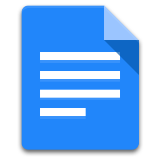Accounting Education Challenges in the New Millennium Era
Abstract
The new Millennium era is closely associated with turbulence business environment along with advanced Information and technology. Job market demands university graduates to concern not only technical skills but also beyond that. Accounting education institutions must respond to the changes by providing education systems that comply with market expectations. This paper described critical thinking related new orientation of accounting education institutions in responding advanced of technology, dynamic business environment along with millennial generation characteristics. This paper explored using literature review perspective to understand the implications of advanced technology, changing the business environment, and the unique character of the millennial generation on accounting education in higher institutions. The paper is expected to give a new perspective for accounting education institutions in terms of handling education process in the era with full of technologically advanced, dynamic business environment and the different character of a student of the millennial generation. Accounting academicians need to adapt in terms of teaching method to fulfill market expectation towards accounting graduates. Accounting Education institutions must be aware of their system education, curriculum, and learning outcomes. This paper explores some ways in which this might be achieved and some of the challenges to effecting change in accounting education that will have to be overcome
Keywords
Full Text:
PDFReferences
Adukaite, A., Van Zyl, I., Cantoni, L. 2016. The role of digital technology in tourism education: A case study of South African secondary schools. Journal of Hospitality, Leisure, Sport and Tourism Education, 19, 54–65.
Bouarab-Dahmani, F., Tahi, R. 2015. New Horizons on Education Inspired by Information and communication technologies. Procedia -Social and Behavioral Sciences, 174, 602–608.
Byrne, M., Flood, B. 2003. Defining the present and shaping the future: the changing nature of accounting education in Ireland. Journal of Accounting Education.
Dellaportas, S., Hassall, T. 2013. Experiential learning in accounting education: A prison visit.
Eckleberry-Hunt, J., Tucciarone, J. 2011. The challenges and opportunities of teaching “generation y”. Journal of Graduate Medical Education, 34, 458–61.
Glennon, T. J., Otr, L. 2016. Management Millennials in the Workforce : Implications for Managers, 251, 1–5.
Gorman, J. P. 2006. Accounting Practice in the New Millennium : A Practitioner’s View This dissertation is submitted in partial fulfillment of the requirements for the Degree of MA in Accounting, Letterkenny Institute of Technology Presented to: Department of Business Sch, July.
Howieson, B. 2003. Accounting practice in the new millennium: is accounting education ready to meet the challenge? The British Accounting Review, 35, 69–103.
Janvrin, D. J., Weidenmier Watson, M. 2017. “Big Data”: A new twist to accounting. Journal of Accounting Education.
Kotb, A., Roberts, C., Stoner, G. 2013. E-business in accounting education in the UK and Ireland: Influences on inclusion in the curriculum.
Leemann, J. E. 2011. How to manage millennials p. 320. Retrieved from http://www.amazon.co.uk/HowManage-Jo-Owen/dp/0273759620
Peeraer, J., Petegem, P. Van. 2015. Integration or transformation? Looking in the future of Information and Communication Technology in education in Vietnam.
Phillips, C., Trainor, J. 2014. Millennial Students and the Flipped Classroom. Journal of Business and Educational Leadership, 211, 519–531.
PwC. 2014. Engaging and empowering Millennials,16.
PwC. 2015. Data Driven: What students need to succeed in a rapidly changing business world, February 2015.
Scarpati, S., Johnson, P. 2012. Teaching and Advising a New Generation of Accounting Students Teaching and Advising a New Generation of Accounting Students, August, 14–18.
Sledgianowski, D., Gomaa, M., Tan, C. 2017. Toward an integration of Big Data, technology and information systems competencies into the accounting curriculum.Journal of Accounting Education, 38, 81–93.
Taipaleenmäki, J., Ikäheimo, S. 2013. On the convergence of management accounting and financial accounting – the role of information technology in accounting change. International Journal of Accounting Information Systems, 14, 321–348.
Topandasani, R., Sanchalit, B. 2005. Accounting Education in The New Millenium With Respect To Emerging Dimensions of Finance And Accounting In.
Watty, K., Mckay, J., Ngo, L. 2016. Innovators or inhibitors? Accounting faculty resistance to new educational technologies in higher education. Journal of Accounting Education, 36, 1–15.
Willis, V. F. 2016. A model for teaching technology: Using Excel in an accounting information systems
DOI: https://doi.org/10.24198/jaab.v2i1.20429
Refbacks
- There are currently no refbacks.
Copyright (c) 2020 Journal of Accounting Auditing and Business

This work is licensed under a Creative Commons Attribution-ShareAlike 4.0 International License.
Journal of Accounting Auditing and Business (JAAB) Indexed in:

This work is licensed under a Creative Commons Attribution-ShareAlike 4.0 International License.








